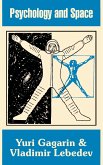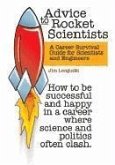The experiences of explorers, adventures, military personnel, scientists, and astronauts in long-duration confinement and isolation have been recorded for decades. But now a behavioral scientist working for the National Aeronautics and Space Administration and the Defense Department has distilled this far-flung literature into a highly readable guide useful for everyone from NASA planners to submarine crews, mountain climbers, prison administrators, and even individual families. Jack Stuster presents startling and often eloquent accounts of people at their best and worst - alone or in small groups, isolated and confined in small places, imprisoned and challenged by extreme conditions. From these bold endeavors, Stuster has assembled the lessons learned and conclusions drawn by the world's leading behavioral scientists to make specific recommendations for facilitating human adjustment and performance in long-term isolation. Successes and failures culled from the diaries, logs, journals, interviews, and memoirs of famous explorers like Amundsen, Byrd, Scott, Heyerdahl, Cook, and Shackleton are compared and contrasted with those of shipwreck and disaster survivors, astronauts and aquanauts, POWs, adventurers, and experiment subjects. Stuster's goal is to help others avoid or mitigate chronic behavioral problems that have affected human and mission performance, often with tragic consequences. Not only will this study aid the designers of future space expeditions, its recommendations and habitability principles are also relevant to a variety of earthbound conditions, including polar and underwater exploration and habitation. In fact, nearly all human relationships that involve small groupsof people living and working in confined spaces or traveling in isolated areas can benefit from this useful and entertaining study.
Hinweis: Dieser Artikel kann nur an eine deutsche Lieferadresse ausgeliefert werden.
Hinweis: Dieser Artikel kann nur an eine deutsche Lieferadresse ausgeliefert werden.








